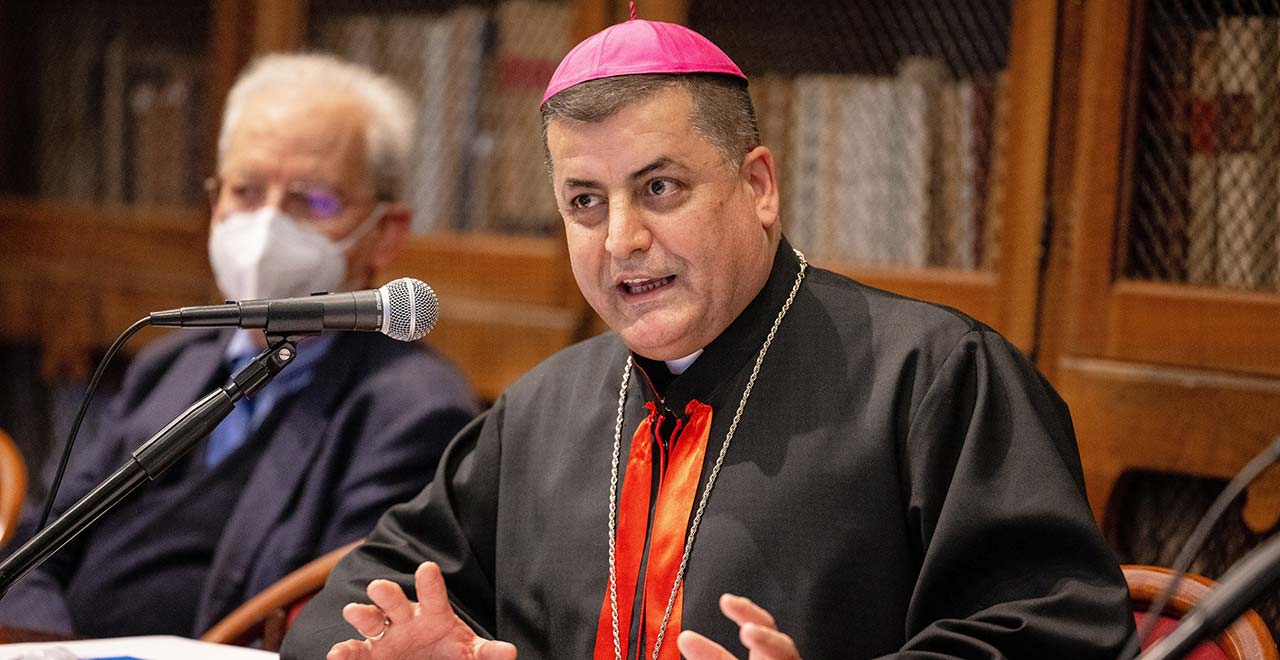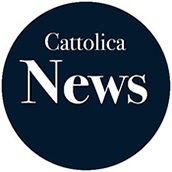Hardly a year has passed since Pope Francis' trip to Iraq. And the first fruits are already beginning to be harvested. As the Chaldean auxiliary bishop of Baghdad, Monsignor Basilio Yaldo, a direct observer of the changes set in motion by that historic apostolic visit, testifies. "The mentality of Muslims towards Christians has changed a great deal". And there is greater awareness of the importance "that the Iraqi territory has both on a regional and international level". Also, because "the religious diversity found in those areas" does not hinder "the peaceful coexistence of all components".
Monsignor Yaldo described the breath of fresh air brought by Pope Bergoglio to the ancient cradle of Mesopotamia on Thursday 17 February at Università Cattolica for the presentation of the book "Return to Abraham. In viaggio con Francesco alle radici della fratellanza" (Castelvecchi Editore). A sort of diary/reportage written by Luca Geronico, journalist for Avvenire, who followed that journey and followed, a few days beforehand, the same itinerary as Pope Francis: Baghdad, Najaf, Ur, Mosul, Qaraqosh and Erbil.
The initiative, promoted by the Department of Religious Studies of the University, is part of a "wider work of attention and study that the Faculty of Arts and Philosophy has launched following the historic trip of Pope Francis and led it to activate the new teaching "Christianity of the East", entrusted to Professor Lorenzo Perrone", said in the institutional greetings the Dean Angelo Bianchi, before entering the heart of the debate introduced by Marco Rizzi, Professor of Ancient Christian Literature. It is "a contribution" that the University and the faculty intend to make to a "deeper and more adequate knowledge, also among young people, of the Christian origins of that extraordinary tradition found in the Land of the Two Rivers".
The proximity of the University founded by Father Gemelli to those territories, which have always been in the balance due to fragile internal political and religious balances, was also expressed by the presence of two young Iraqi students at Università Cattolica: Adad Zaia and Maryam Sryoka. Since the 2021-22 academic year, they have been enrolled in the Master's degree programme in Global Business Management at the Faculty of Economics and Law of the Piacenza campus. Exempt from the payment of university fees and hosted by the Collegio Sant'Isidoro, the reception of Adad and Maryam is part of a project of collaboration between the University founded by Father Gemelli and the Catholic University of Erbil.
The Pope's trip was an "event" or, better, an "advent" for Iraq or, even more, "a Magna Charta of the Middle East", in the words of Cardinal Louis Raphaël Sako, Patriarch of Babylon of the Chaldeans, taken up by Avvenire journalist Riccardo Maccioni, moderator of the meeting. What were the most evident effects of that apostolic visit? "It was the first time that a Pontiff set foot in Iraq, thus fulfilling the wish that John Paul II had already expressed in 2000", recalled Monsignor Yaldo, who was in Rome at the time to study at the Pontifical Urban University. "We have waited 20 years for this visit". And the results are now being seen. "What Pope Francis brought was a great message of peace and hope for the entire Middle East", clarified the bishop of Baghdad. So much so that the date of 6 March, the day of his stop in Ur with the meeting of all the heads of the religious communities in Iraq ‒ Muslims, Sunnis, Shiites, Jews, Yazidis, Christians ‒ was proclaimed by the prime minister as the national day of tolerance. "The Pope has come for all Iraqis and not only for Christians". The latter, who represent 1% of the population, have always lived in a difficult situation in a state with a Muslim majority. Suffice it to say that while in 2003, before the Isis occupation, there were more than 1,300,000 Christians in the country, today there are barely 300,000. "After the Holy Father's trip, many are thinking of returning. Peace and security are needed, but also projects to create jobs for young people, who are forced to emigrate elsewhere to find work. The Pope has donated more than 100,000 euros to Christians, which has been used to carry out numerous activities, many of which are also aimed at Muslims".
Hence the appeal by Monsignor Yaldo, who will take part in the Meeting of Mediterranean Bishops and Mayors scheduled in Florence from 23 to 27 February. "It is necessary to help Middle Eastern countries because emigration is not the solution". Above all, "we must help Christians not to leave these areas: the Middle East needs Christianity". And this meeting can be the keystone "to give Christians the courage and strength to stay". These words are in tune with the great attention that Pope Francis has always paid to the Mediterranean, as Riccardo Cristiano of Reset recalled. Perhaps because, Luca Geronico observed, this area is an "epiphenomenon of current crises and migratory processes". According to the bishop of Baghdad, Europe has the task of guaranteeing stability in the Mediterranean, helping Christians to remain in these countries and allowing Iraq to become once again the cradle of a new political process for the entire Middle East, acting as a balancing factor between Iran, Syria, Turkey and Jordan.




